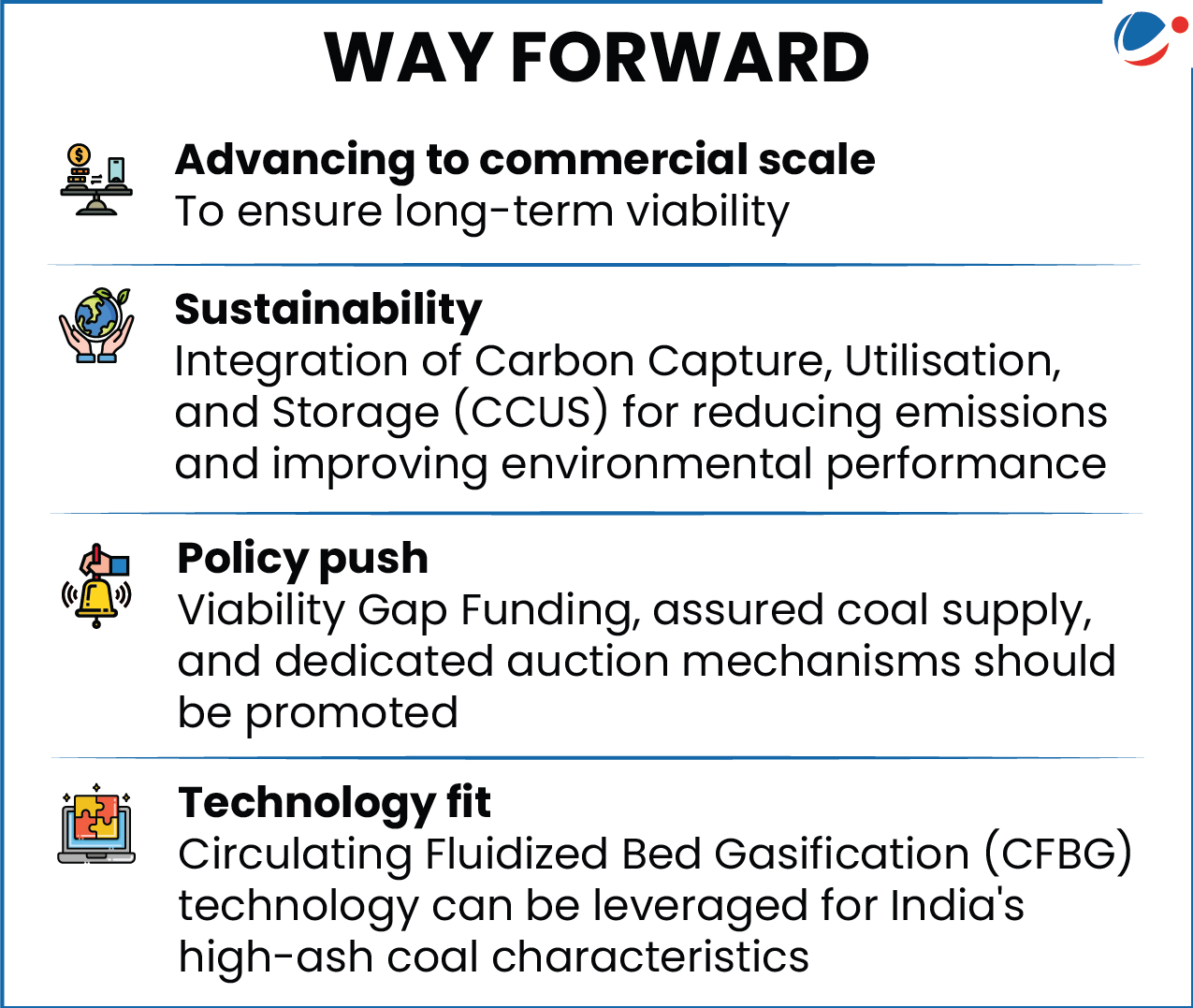Guidelines provide for preparation of mining and mine closure plans for UCG blocks, procedures for pilot feasibility study, groundwater monitoring, post-mining rehabilitation etc.
- To ensure scientific mine closure, companies will be required to maintain an escrow account with the Coal Controller Organization (CCO).
- CCO (Ministry of Coal) collects and maintains coal production data of all private and public sector coal mines in the country.
- CCO also acts as the appellate authority in case of disputes between consumers and owners arising out of declaration of grade and size of coal.
What is Coal Gasification?

- A thermochemical process that converts coal into syngas — a mixture of carbon monoxide (CO), hydrogen (H₂), carbon dioxide (CO₂), methane (CH₄) and other gases.
- It involves the partial oxidation at high temperature and pressure often integrated with carbon capture and storage technology to reduce CO2 emissions.
- It enables cleaner utilisation of coal, producing syngas for power generation, methanol, ammonia, urea, and liquid fuels.
Challenges for Coal Gasification Technology
- High Project Costs: Requires heavy upfront investment in gasifiers, CO₂ capture, and processing units.
- Technology Adoption: Global technologies suit low-ash coal, making adaptation to India’s high-ash coal technically complex and expensive.
- Uncertain Coal Supply: Inconsistent coal quality and absence of assured long-term supply agreements affect operational stability.
- Input Costs: Combined expense of coal, oxygen, and water makes domestic gasification costlier than using imported LNG or natural gas.





